Politics
/ArcaMax
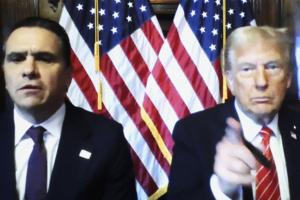
Editorial: Playing politics with Justice: Trump DOJ broke the rules on leaks about COVID nursing homes probes
Donald Trump has endlessly complained about the Department of Justice abusing its wide-reaching powers to make improper political attacks on him. But it was the DOJ under Trump himself that did exactly that to the Democratic governors of New York and New Jersey in late October 2020, violating department policy. So says the DOJ’s own ...Read more

Commentary: Why Israel can't just 'cut the head off' of Hamas or Hezbollah
Since the horrific Hamas terrorist attacks of Oct. 7, 2023, Israel has been at war in the Middle East. The conflict has stretched across borders, spanning Gaza to Lebanon to Iran. Over the course of 15 months, the Israel Defense Forces and Israel’s intelligence services have taken the fight directly to Hamas and Lebanese Hezbollah, two of the ...Read more
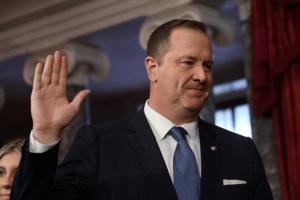
Editorial: Increasing use of coarse language in seats of power reflects a broader decline
The term “presidential” has long referred to a way a person carries himself and the significance of the office. It also can refer to the people the president surrounds himself with.
After the rapid evolution of public discourse in recent years — some might convincingly call it devolution — we wonder whether the term will survive another...Read more

Commentary: California utilities have lofty climate goals. Too bad their customers are in the dark
Regardless of the presidential election results, the clean energy transition is still a major priority for the nation’s electric utilities. Perhaps nowhere in the world is the pressure more intense than in Southern California, where the demands on the power grid are high and many residents are well acquainted with the consequences of aging, ...Read more
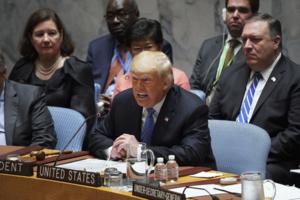
Commentary: The improvement Trump could make to US foreign policy
Donald Trump was hardly a steward of responsible global governance in his first term. His withdrawal from multilateral agreements, including the Iran nuclear deal and the Paris climate accords, showcased an unusual disdain for international institutions and cooperation. He has little evident regard for the “rules-based international order” ...Read more
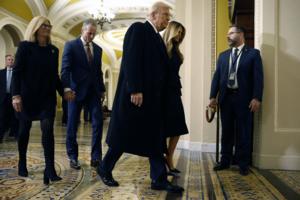
Matthew Yglesias: Trump and Republicans are avoiding the hard questions
One bill or two? That’s the question currently obsessing Washington as President-elect Donald Trump fails to decisively resolve a tactical disagreement between House and Senate Republicans.
John Thune, the new Senate majority leader, wants the party to pass two bills through the filibuster-dodging budget reconciliation process: The first ...Read more
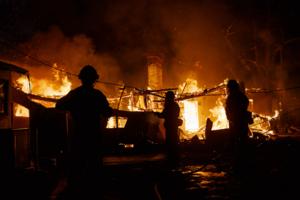
Commentary: Shakespeare's 'The Tempest' illuminates an existential truth revealed by the Los Angeles fires
LOS ANGELES -- The sprawling geography of Los Angeles is hard to envision for those who live outside the region. Friends and family members in New York, gripped by apocalyptic images of the fires in 24/7 news reports, have had difficulty accepting that I live far enough away from the hills and the coast to be relatively safe.
"Still OK?" is the...Read more
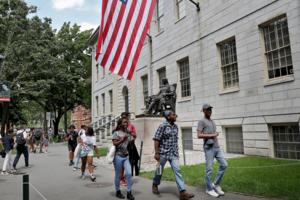
Commentary: If your school is not in the Ivy League, it's as if you don't matter at all
Harvard University recently made headlines because its number of Black students has decreased following the U.S. Supreme Court decision that determined Harvard’s affirmative action program had to come to an end.
Harvard also made news when it announced that it was returning to standardized testing. More recently: Some of Harvard’s ...Read more
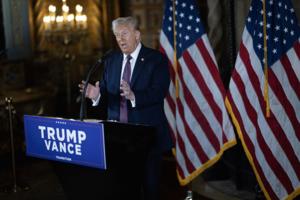
Mary Ellen Klas: Trump is making America Florida
There is a reason that President-elect Donald Trump has tapped so many Floridians to fill his administration. Part of it is proximity — Trump has a mansion in Palm Beach — but more than that, Florida is the breeding ground for the kind of government Trump envisions for his second term: A souped-up executive branch that has contempt for ...Read more

Commentary: If 'Baby Shark' represents the worst of children's music, this is the genre's best
It was date night for me and my husband, the first since our daughter was born. When we returned to my mom’s house for the baby — hurriedly, being first-time parents — I heard a strange but familiar voice.
It was that of Raffi Cavoukian, known simply as “Raffi,” who rose to fame in the 1970s with such folksy, reassuring numbers as “...Read more

David Mills: Why Donald Trump talks about taking over Panama and Greenland
The young pitcher's on his way to the majors, but the old catcher who will never get there knows the tricks to pull. He tells him to bean the mascot, in the great baseball movie "Bull Durham." He does.
The batter says, "This guys crazy," and the catcher agrees, adding, "I wouldn't dig in there if I was you. The next one might be at your head." ...Read more

Editorial: Facebook's about-face on speech: Mark Zuckerberg sways with the pollical winds
Mark Zuckerberg can do with his social media giant Meta as he pleases and he aims to please the prevailing views of the federal government. The return of Donald Trump to the White House coincides with the naming of key Trump ally and UFC CEO Dana White to its board and abruptly deciding to move away from using fact-checking partners to combat ...Read more

Editorial: The clock is ticking on TikTok: US Supreme Court is likely to force Beijing to sell or shut down
Based on the questioning of the U.S. Supreme Court on Friday, the justices sound inclined to uphold a law requiring the Chinese owner of TikTok to either sell the widely popular app or be banned from this country. It seems the correct reading of the Protecting Americans from Foreign Adversary Controlled Applications Act.
As we’ve said before,...Read more

Trudy Rubin: Trump's threats to seize the Panama Canal and Greenland sound like Putin on Ukraine
I meant to write a column about key global flashpoints to watch out for in 2025.
But I soon realized there are two main things you need to observe closely in the new year to assess whether this chaotic world will grow more stable: what Donald Trump and Vladimir Putin each want from the world (hint: it seems to be the same thing), and where that...Read more
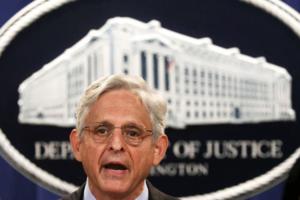
Jackie Calmes: Merrick Garland's integrity saved the DOJ only to doom it again
In 2016, the American Bar Association couldn't say enough good things about Merrick Garland, then the chief judge of the powerful U.S. Court of Appeals for the District of Columbia and President Obama's nominee for the Supreme Court, when it sent the Senate a report giving him its highest rating. So at Garland's confirmation hearing, a bar ...Read more
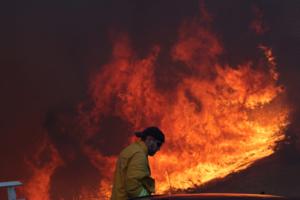
Commentary: Wildfires come with the wildness that draws us to Los Angeles
Los Angeles is a topographical wonderland. Mountains loom in the distance. Hillsides and canyons are the refuge of hikers and dog-walkers. Beaches and bluffs above the coastline beckon. Into this wilderness we have threaded our neighborhoods and streets, not to mention freeways, making it a mix of the wild and the urban. We are the only megacity...Read more
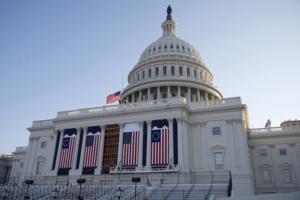
John M. Crisp: Trump's inaugural speech: What to watch for
President-elect Donald Trump’s Jan. 7 press conference in Mar-a-Lago got me thinking about his upcoming inaugural speech, on Jan. 20. What should we watch for?
To begin, consider Trump’s first inaugural address, delivered on Jan. 20, 2017. This is the speech that’s sometimes characterized as the “American carnage” address, during ...Read more

Doyle McManus: Trump wants to grab control of Greenland, Canada and the Panama Canal. He's already bungled it
WASHINGTON — Donald Trump's campaign excursions into foreign policy were few and far between. He promised to build a stronger military and keep the country out of war. He said he would bring peace to Gaza and end the war in Ukraine on "day one," never offering details.
Last week, Trump waded boldly into global affairs — but he barely ...Read more
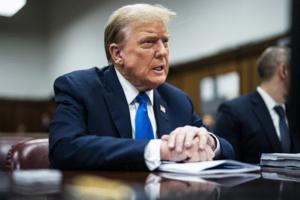
Editorial: Justice Juan Merchan got it just right with Donald Trump's sentencing
Donald Trump, felon, will remain exactly that. A felon. He also will remain a free man, ready to take the oath of office Jan. 20 to be the duly elected 47th president of the United States, able to do the will of the people without concern for his personal legal travails.
That was the upshot of New York Justice Juan Merchan’s deft handling, ...Read more
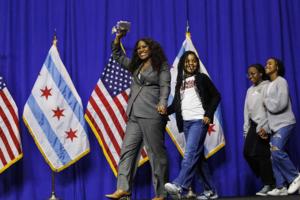
Commentary: Embracing school choice will move Democrats back to the center
Education reform has long been a contentious issue in American politics, and the debate over school choice is especially divisive. Ironically, President-elect Donald Trump’s support of efforts to provide families with educational options presents Democrats with a critical first opportunity to embrace bipartisanship and pivot toward the ...Read more


























































